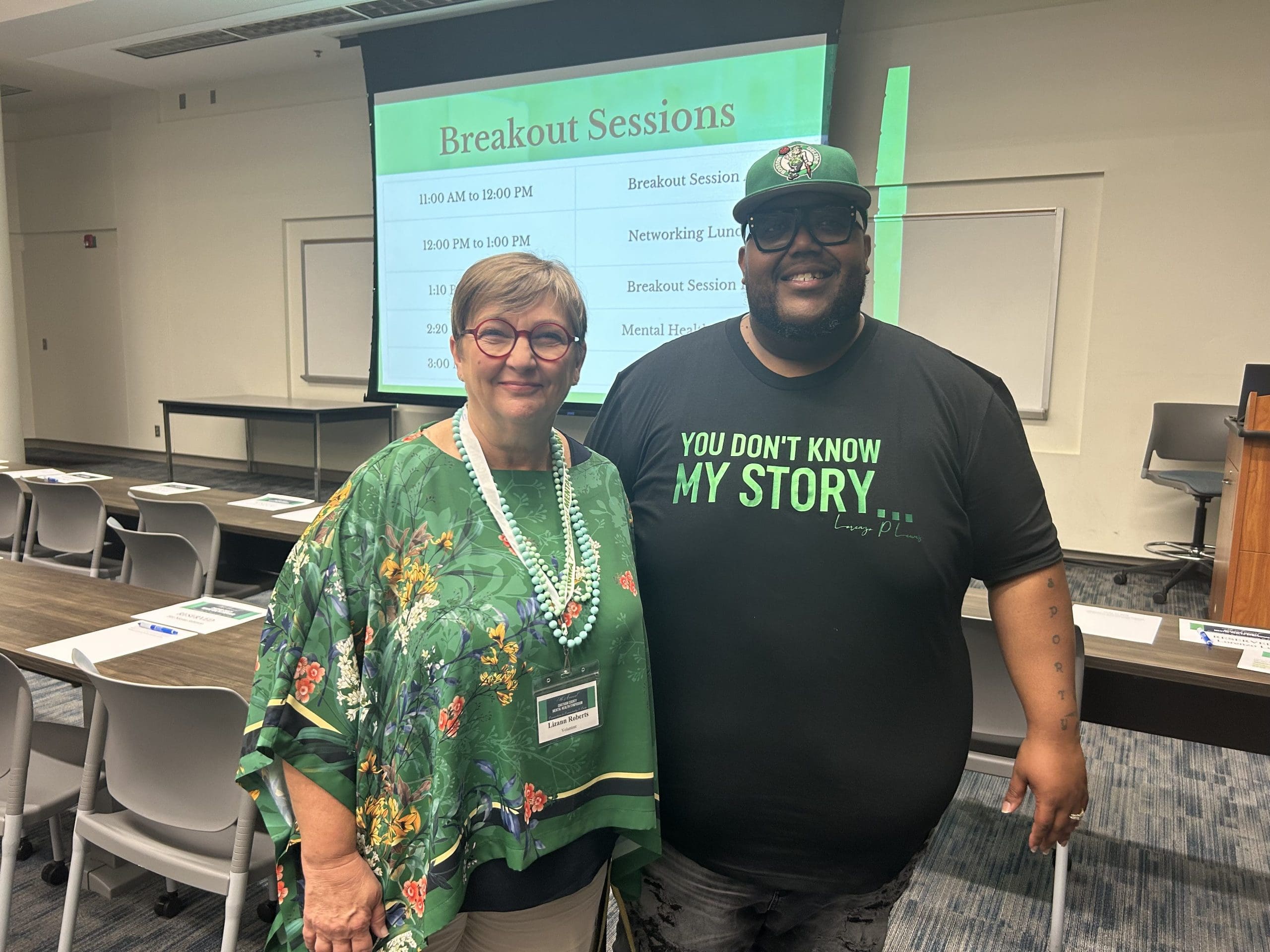Event sponsored by Coastal Georgia Indicators Coalition helps usher in June as Men’s Health Month
(SAVANNAH, Ga.) On average, men in the United States die nearly 6 years earlier than women and are at higher risk for many serious diseases, including heart disease, lung cancer, and HIV. In addition, men experience unique health problems that don’t affect women, like prostate cancer. Negative impacts of social determinants of health factors, like economic stability and educational access and quality, can increase their risk for poor health outcomes. [https://minorityhealth.hhs.gov/mens-health-month-2024#:~:text=June%2010%20%2D%20June%2016%2C%202024]

Additionally, only about a quarter of African Americans seek mental health treatment, compared to 40% of white Americans. Unequal access to health care is one major contributor to this disparity as nearly 10% of Black people in the U.S. do not have health insurance, compared to 5.2% of non-Hispanic white people.
The month of June is recognized each year as Men’s Health Month. It is a time to raise awareness of health issues that commonly affect men, and is also a chance to encourage men to take care of themselves by eating well, exercising, and getting regular checkups.
To help promote health awareness for minority men with an emphasis on mental health, the Chatham County Regional Community Collaborative and Gateway Community Service Board recently presented the 10th Annual Chatham County Mental Health Symposium with the theme, “Connection to Community and Care.” The Coastal Georgia Indicators Coalition was pleased to help sponsor and organize the event at Georgia Southern University – Armstrong Campus.
“Raising awareness about men’s mental health is crucial, especially as we transition from May’s Mental Health Awareness Month into June, dedicated specifically to men’s mental health,” said Phylicia Anderson, LCSW, director of Outreach, Gateway Community Service Board. “It’s vital to recognize that men face unique challenges and stigmas that can prevent them from seeking the help they need. By fostering open conversations and providing accessible resources, we can support men in taking proactive steps toward their mental well-being to create healthier outcomes for themselves, their families, and their communities.”
Event participants included law enforcement personnel, mental health providers and community leaders.
Keynote speaker Lorenzo Lewis shared his mission as a social entrepreneur who models his life around liberation. As the founder and former Chief Visionary Office of The Confess Project, a leading national grassroots movement that empowers barbers to become mental health advocates for men of color, Lewis understands that releasing trauma is the only way to move forward.
“One in five individuals is impacted with a mental illness here in America, and if you think about diverse communities, marginal communities, people of color, members of the LGBTQ, and people with disabilities, the numbers are skyrocketing,” said Lewis. “So the work that we do is truly to empower those communities, empower them to have a voice and give them a way to navigate, but really give them the tools and skills. We are focused on training everyday people to be mental health advocates for themselves, their loved ones and their neighbors.”
In the barbershop, Lewis witnessed the intersections of poverty and violence and learned that people need more support and pathways to careers, wealth, and liberation.
“Our collective mission in supporting this event was to help strengthen connections across the community,” said Lizann Roberts, CGIC’s executive director. “Barbers and other small-business owners have one-on-one relationships with members of the community and they are the key in this process. They already know how to listen, but with this training, they are learning they can also guide and support.”
DATA
- According to data updated in 2024, adults in Chatham County experienced, on average, 5.1 days of poor mental health in the past 30 days.
Source: Coastal Georgia Indicators Coalition [https://www.coastalgaindicators.org/indicators/index/view?indicatorId=368&localeId=463]
- Approximately 1 in 10 men experience some form of depression or anxiety, but less than half seek treatment.
- Men are less likely than women to seek help for depression, substance abuse, and stressful life events due to social norms and stigmas around masculinity.
Source: American Psychological Association (APA)
- Men die by suicide 3.5 times more often than women.
- Data Point: In the United States, middle-aged white men account for nearly 70% of all suicides annually.
Source: The Centers for Disease Control and Prevention (CDC)
- Men are more likely than women to use almost all types of illicit drugs.
Source: National Institute on Drug Abuse (NIDA) - Approximately 20% of men have reported binge drinking at least five times per month.
Source: The Centers for Disease Control and Prevention (CDC)
- From February 1 to 13, 2023, 33.9% of adults in Georgia reported symptoms of anxiety and/or depressive disorder, compared to 32.3% of adults in the U.S.
- In 2021, 20.1% of adolescents (ages 12-17) and 8.3% of adults in the U.S. reported having a major depressive episode in the past year.
- Drug overdose death rates increased in Georgia from 10.7 per 100,000 in 2011 to 23.5 per 100,000 in 2021. Over the same period, drug overdose death rates increased from 13.2 to 32.4 per 100,000 in the U.S.
- Georgia’s age-adjusted suicide rate was higher than the national level in 2021.
Source: KFF [https://www.kff.org/statedata/mental-health-and-substance-use-state-fact-sheets/georgia/]
- About 25% of African Americans seek mental health treatment, compared to 40% of white Americans. Unequal access to health care is one major contributor to this disparity. Nearly 10% of Black people in the U.S. do not have health insurance, compared to 5.2% of non-Hispanic white people.
Source: McLean Hospital [https://www.mcleanhospital.org/essential/black-mental-health#:~:text=Statistics tell us that about,of non-Hispanic white people]
- The adult Black community is 20% more likely to experience serious mental health problems, such as Major Depressive Disorder or Generalized Anxiety Disorder.
Source: Columbia Psychiatry [https://www.columbiapsychiatry.org/news/addressing-mental-health-black-community#:~:text=Research suggests that the adult,Disorder or Generalized Anxiety Disorder]
HOSTS/SPONSORS
Chatham County Regional Community Collaborative / Amerigroup, Charlie Health, Chatham County Government, Coastal Georgia Indicators Coalition, Coastal Harbor Health System, Department of Behavioral Health and Developmental Disabilities, Dunkin Donuts, Gateway Community Service Board, Georgia Southern University, Hillside, Real Deal Catering, Resilient Georgia, Resilient Coastal Georgia, Southern Eagle, The Confess Project of America.
ABOUT LORENZO LEWIS
Social entrepreneur and speaker Lorenzo Lewis models his life around liberation. As the founder and former Chief Visionary Office of The Confess Project, a leading national grassroots movement that empowers barbers to become mental health advocates for men of color, Lorenzo understands that releasing trauma is the only way to move forward. In the barbershop, Lorenzo witnessed the intersections of poverty and violence and learned that people need more support—they need pathways to careers, wealth, and liberation. He helped create a revolution in mental health and in turn, it led him to look deeper inside himself. Born in jail to an incarcerated mother, Lorenzo struggled with depression and anxiety throughout his youth. At 17, he almost re-entered the system of mass incarceration he had come from. It was then he snapped in and began his journey to wellness. It started with an education at Arkansas Baptist College and continued with him facing his own emotional challenges, eventually becoming a mental health advocate and changemaker. His book, Jumping Over Life’s Hurdles and Staying in the Race, threads together these lessons to tell a story of how he became the visionary he is today. Learn more: https://www.lorenzoplewis.com/
ABOUT GATEWAY COMMUNITY SERVICE BOARD
Gateway Community Service Board, as an instrumentality of the State of Georgia, is a public community-based organization serving eight Georgia counties, including Camden, Glynn, McIntosh, Liberty, Chatham, Bryan, Long, and Effingham. Gateway’s mission is to be a leader in providing comprehensive community services for mental health, substance use disorders, and developmental disorders to its people and communities. Learn more: https://gatewaycsb.org/
ABOUT COASTAL GEORGIA INDICATORS COALITION
The Coastal Georgia Indicators Coalition (CGIC) is comprised of community members and advocates working together through a comprehensive coordinated approach for planning accountability. It serves as a collaboration of resource agencies addressing overall health and well-being while leveraging resource initiatives. The purpose of the Coalition is to improve community well-being by engaging and leading the community to work collectively in its development of strategic priorities that guide policy, programs and resource allocation. CGIC is the responsible organization for the development, and with partners, the implementation of the Chatham Community Blueprint. CGIC has strength and capacity related to leadership, management, systems and partnerships.
https://www.coastalgaindicators.org
MEDIA CONTACT
Marjorie Young
Carriage Trade Public Relations® Inc.
912-844-9990
marjorie@carriagetradepr.com
